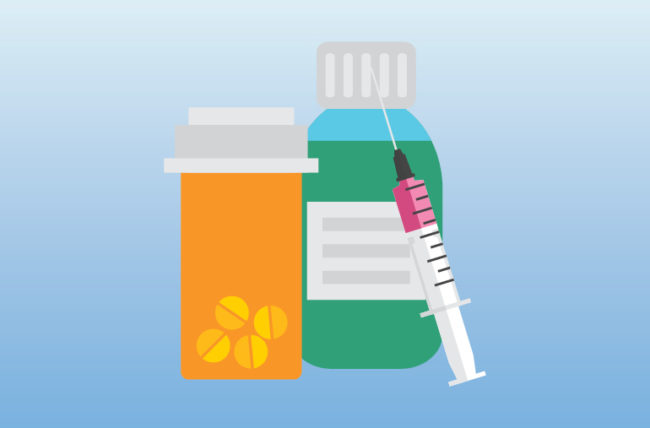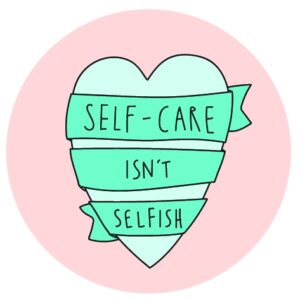If you are struggling with an eating disorder, know that you are not alone. Eating disorders are complex mental illnesses that can be difficult to overcome on your own. That is why it is important to seek professional help. In this blog post, we will discuss the different types of eating disorder treatment available and what to expect from each type of treatment. We will also provide tips for those who are in recovery from an eating disorder.
Contents
What Are Eating Disorders?
 Eating disorders are mental and physical illnesses that involve an unhealthy relationship with food. A person with an eating disorder may obsess about their weight, the amount of food they eat, and/or exercise. Eating disorders can lead to serious health problems and even death.
Eating disorders are mental and physical illnesses that involve an unhealthy relationship with food. A person with an eating disorder may obsess about their weight, the amount of food they eat, and/or exercise. Eating disorders can lead to serious health problems and even death.
There are three main types of eating disorders: anorexia nervosa, bulimia nervosa, and binge-eating disorder.
Anorexia nervosa is characterized by extreme weight loss and a fear of gaining weight. People with anorexia nervosa may restrict their food intake, exercise excessively, or do both. Bulimia nervosa is characterized by episodes of binge-eating followed by purging (vomiting or using laxatives). Binge-eating disorder is characterized by episodes of binge-eating without purging.
Eating disorders can have serious consequences on a person’s physical and mental health. Also, Eating disorders can lead to malnutrition, organ damage, and even death. Eating disorders can also cause anxiety, depression, and other mental health problems.
If you or someone you know has an eating disorder, treatment is available. Treatment for eating disorders typically includes a combination of psychotherapy, medication, and nutrition counseling. With treatment, most people with eating disorders improve significantly or recover completely.
Different Eating Disorder Treatment

There are many different types of eating disorder treatment. The most important part of treatment is finding the type that works best for you. Here are some different types of treatment:
Therapy
One of the most common forms of treatment is therapy. This can be done in a one-on-one setting or a group setting. Therapy can help you understand your eating disorder, and work through the issues that are causing it, Therapy is also one of the most effective forms of treatment for eating disorders. There are many types of therapy, so it is important to find a therapist that you are comfortable with. Some of these types are:
Cognitive Behavioral Therapy (CBT): This type of therapy helps you understand the thoughts and behaviors that are causing your eating disorder. CBT also helps you change these thoughts and behaviors.
Dialectical Behavior Therapy (DBT): DBT is similar to CBT, but it also focuses on teaching you how to deal with intense emotions. DBT can be helpful for people who have trouble controlling their emotions.
Interpersonal Therapy (IPT): IPT focuses on your relationships with other people. IPT can help you understand how your relationships affect your eating disorder and vice versa.
Family-Based Treatment: This type of therapy involves both the person with an eating disorder and their family or caregivers. Family-based treatment helps the family learn how to support the person with an eating disorder.
Supportive Psychotherapy: This type of therapy is less focused on changing thoughts and behaviors, and more focused on providing support. This can be helpful if you are not ready to make changes, or if you are having a difficult time in treatment.
Medications
 Some people with eating disorders may also need medication. Medication can be used to treat the symptoms of an eating disorder, as well as any other mental health problems that may be present. It is important to talk to your doctor about all of your options before starting any type of medication. Some common types of medication used to treat eating disorders are:
Some people with eating disorders may also need medication. Medication can be used to treat the symptoms of an eating disorder, as well as any other mental health problems that may be present. It is important to talk to your doctor about all of your options before starting any type of medication. Some common types of medication used to treat eating disorders are:
Selective Serotonin Reuptake Inhibitors (SSRIs): SSRIs are a type of antidepressant that can help treat depression, anxiety, and obsessive-compulsive disorder (OCD). OCD is often associated with eating disorders.
Tricyclic Antidepressants (TCAs): TCAs are another type of antidepressant. They can help treat depression and anxiety. These medications can have more side effects than SSRIs.
Antipsychotics: Antipsychotics are typically used to treat schizophrenia and bipolar disorder. They can also be used to treat eating disorders.
Lithium: Lithium is a medication that is typically used to treat bipolar disorder. It can also help with impulsivity, which is often a problem for people with eating disorders.
Nutrition Counseling
Eating disorders often cause nutritional deficiencies. Nutrition counseling can help you understand how to eat a balanced diet, and get the nutrients your body needs. Nutrition counseling is often done by a registered dietitian (RD). RDs are nutrition experts and can help create a plan that is tailored to your specific needs. In n addition to helping you eat a balanced diet, they can also help you understand how your eating disorder is affecting your body, and offer advice on how to cope with any side effects.
A counselor may suggest you keep a food diary.
A food diary is a way of tracking the foods you eat, as well as your feelings about eating. This can help understand your eating patterns and triggers. There may be many different types of triggers that contribute to your eating disorder. Triggers can be internal (thoughts and emotions) or external (environmental factors). Some common triggers are:
- Dieting or food restriction
- Certain body shapes or sizes
- Perfectionism
- Certain foods or food groups
- Exercise
Support Groups
 Anorexia and bulimia treatment often includes attending support groups. This can provide you with a space to share your experience with others who understand what you’re going through. It can also be a helpful way to learn healthy coping mechanisms and develop a network of people who can support your recovery.
Anorexia and bulimia treatment often includes attending support groups. This can provide you with a space to share your experience with others who understand what you’re going through. It can also be a helpful way to learn healthy coping mechanisms and develop a network of people who can support your recovery.
These support groups are typically led by a mental health professional and may require you to pay a fee. However, there are also many free support groups available. You can find a list of these groups on the National Eating Disorders Association website.
If you’re not ready to attend a support group, you may still find it helpful to talk to someone who understands eating disorders. Many people who have recovered from an eating disorder are happy to share their experiences with others who are struggling. You can find these individuals through online forums or support groups.
It’s important to remember that recovery is possible. With treatment, you can overcome an eating disorder and live a full and healthy life.
Self-Care
 An important part of eating disorder treatment is taking care of yourself. This means getting enough rest, eating healthy foods, and exercising. It also means avoiding alcohol and drugs.
An important part of eating disorder treatment is taking care of yourself. This means getting enough rest, eating healthy foods, and exercising. It also means avoiding alcohol and drugs.
You should also avoid triggering situations, such as going to places where you used to binge eat or purge. If you are triggered, try to remove yourself from the situation and do something calming, such as reading or listening to music.
It is also important to find a support system. This can be friends, family, a therapist, or a support group for people with eating disorders. These people can provide emotional support and help you stay on track with your treatment plan.
Some self-care methods are:
- Get enough sleep: One should get at least eight hours of sleep every night.
- Also, Eat healthy foods: Also, Eating nutritious foods helps the body to heal and recover from an eating disorder.
- Exercise: Exercise releases endorphins, which have mood-boosting effects. It also helps to improve one’s self-esteem and body image.
- Avoid alcohol and drugs: Alcohol and drugs can interfere with eating disorder treatment and recovery. They can also lead to relapse.
- Find a support system: A support system can provide emotional stability and help you stay on track with your treatment plan.
Self-care is an important part of eating disorder treatment. By taking care of yourself, you are giving your body the chance to heal. Try to get enough sleep, eat healthy foods, exercise, and avoid triggering situations. Find a support system to help you through this difficult time. With treatment and self-care, you can recover from an eating disorder.
Eating Disorder Treatment Programs
There are many different types of eating disorder treatment programs. These programs vary in intensity, length, and focus. It is important to find a program that is right for you.
The first step in finding an eating disorder treatment program is to talk to your doctor. They can help you assess your needs and make a recommendation. You can also search online or ask friends for recommendations.
Once you have found a few potential treatment programs, it is important to do your research. Make sure the program is accredited and has a good reputation. Also, be sure to read reviews from past patients. This will give you a good idea of what to expect from the program.
Finally, when choosing an eating disorder treatment program, it is important to listen to your gut. Choose the program that feels right for you. Trust your instincts and go with your gut feeling. There may be many eating disorder treatment programs to choose from, but only you will know which one is right for you.
If you or someone you know is struggling with an eating disorder, please seek help. There are many resources available.
How To Select Eating Disorder Treatment Method For You?

Selecting a treatment method for an eating disorder can be a daunting task. There are many different types of treatment available, and it is important to select the one that is right for you. Here are some things to consider when making your decision:
Goals of Your Treatment
One of the main things to consider when selecting a treatment method is your goals. What are you hoping to achieve through treatment? Do you want to recover completely, or do you just want to improve your symptoms? There are different types of treatment available for different goals, so it is important to be clear about what you want before making a decision.
Your Health Status
Another important factor to consider is your health status. If you are suffering from severe malnutrition, for example, inpatient treatment may be necessary. On the other hand, if your symptoms are not as severe, outpatient treatment may be a better option. It is important to consult with a medical professional to determine what level of care is right for you.
Your Insurance Coverage
Insurance coverage is another important factor to consider. Some treatment methods are not covered by insurance, so you will need to pay for them out of pocket. If you have good insurance coverage, however, this may not be a problem. Be sure to check with your insurance provider to see what is covered before making a decision.
Budget
An important consideration when selecting a treatment method is your budget. Some methods, such as inpatient treatment, can be very expensive. If you are on a tight budget, you may need to look for cheaper options. There are many different types of treatment available, so it is sure to fit your budget.
These are just a few things to consider when making your decision. Be sure to consult with a medical professional and/or therapist to get more information about the different types of treatment available. With so many options available, you are sure to find the one that is right for you
Tips To Keep In Mind While Eating Disorder Treatment
There are many tips to keep in mind while you are in treatment for an eating disorder. One of the most important is, to be honest with your therapist. This means being honest about how you are feeling, what you are thinking, and what you are struggling with. It can be difficult to open up, but it is important to do so if you want to recover from your eating disorder.
Another tip is to be patient with yourself. Recovery from an eating disorder takes time and there will be ups and downs along the way. Be patient with yourself and trust that you will eventually get better.
Finally, make sure to take care of yourself both physically and emotionally during treatment. Eating disorders can take a toll on your body and mind, so it is important to nurture both while you are in treatment. Eat healthy meals, get enough sleep, and exercise regularly. And, make sure to talk to your therapist about any emotions you are struggling with.
If you keep these tips in mind while in treatment, you will be well on your way to recovery from your eating disorder.
Benefits of Eating Disorder Treatment

There are many benefits of eating disorder treatment. When you are in treatment, you will have access to a variety of resources that can help you recover from your eating disorder. Some of these benefits are listed below.
Helps To Normalize Eating
One of the main benefits of eating disorder treatment is that it helps to normalize your relationship with food. When you are in treatment, you will learn how to eat without restrictions and how to listen to your body’s hunger cues. This can help you recover from anorexia or bulimia and can prevent you from developing another eating disorder in the future.
Promotes Physical Healing
Eating disorders can take a toll on your physical health. If you are underweight, treatment can help you gain back the weight that you have lost. If you have been purging, your body may be dehydrated and lacking essential nutrients. Treatment can help replenish these nutrients and promote physical healing.
Improves Mental Health
Eating disorders can also affect your mental health. Treatment can help you understand and manage the thoughts and emotions that contribute to your eating disorder. You will also learn healthy coping skills that can be used when triggers arise in the future. Improving your mental health can lead to a better quality of life overall.
Makes It Easier To Connect With Others
When you are struggling with an eating disorder, it can be difficult to connect with others. Treatment can help you build healthy relationships and learn how to communicate your needs. This can make it easier to form lasting bonds with friends and family members.
If you or someone you know is struggling with an eating disorder, treatment can be very helpful. There are many resources available to support you on your journey to recovery.
Conclusion
Eating disorders are serious and potentially life-threatening illnesses that affect people of all ages, genders, and backgrounds. While there is no one-size-fits-all approach to treatment, there are many effective options available for those struggling with an eating disorder. With the help of a qualified mental health professional, it is possible to recover from an eating disorder and live a happy, healthy life.
If you or someone you know is struggling with an eating disorder, please seek professional help. Eating disorders can be extremely difficult to overcome on one’s own, but with the right support, recovery is possible. Several organizations offer support and resources for those affected by eating disorders.
Hope this article was of help to you! If you are suffering from mental health disorders, you may seek help from Therapy Mantra. We have a team of highly trained and experienced therapists who can provide you with the tools and skills necessary for overcoming mental health issues. Contact us today to schedule an online therapy or download our free Android or iOS app for more information.


